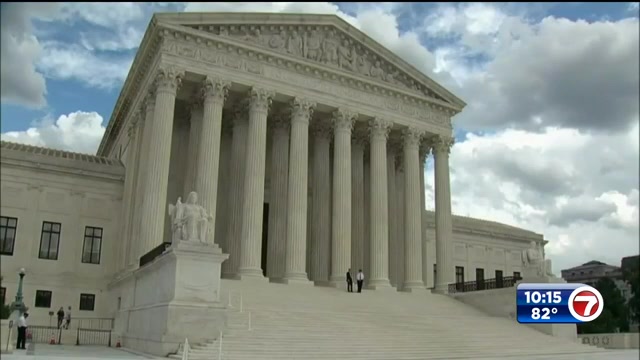
- #Supreme court latest decisions voting rights how to
- #Supreme court latest decisions voting rights code
While it is the prerogative of every Justice to read each petition for certiorari himself/herself, many participate in what is informally known as the "cert pool." As petitions for certiorari come in on a weekly basis, they are divided among the participating Justices. Among other things, they do legal research that assists Justices in deciding what cases to accept help to prepare questions that the Justice may ask during oral arguments and assist with the drafting of opinions. Often, they have served a year or more as a law clerk for a federal judge. These are individuals who, fairly recently, graduated from law school, typically, at the top of their class from the best schools. Under certain instances, one Justice may grant a stay pending review by the entire Court.Įach Justice is permitted to have between three and four law clerks per Court term. Five of the nine Justices must vote in order to grant a stay, e.g., a stay of execution in a death penalty case. According to these rules, four of the nine Justices must vote to accept a case. The Supreme Court has its own set of rules. Court of Appeals or the highest Court in a given state (if the state court decided a Constitutional issue). Typically, the Court hears cases that have been decided in either an appropriate U.S. In fact, the Court accepts 100-150 of the more than 7,000 cases that it is asked to review each year. The Court usually is not under any obligation to hear these cases, and it usually only does so if the case could have national significance, might harmonize conflicting decisions in the federal Circuit courts, and/or could have precedential value. This is a request that the Supreme Court order a lower court to send up the record of the case for review. The primary means to petition the court for review is to ask it to grant a writ of certiorari.

Parties who are not satisfied with the decision of a lower court must petition the U.S. Most of the cases the Supreme Court hears are appeals from lower courts. Appellate jurisdiction means that the Court has the authority to review the decisions of lower courts. The Constitution limits original jurisdiction cases to those involving disputes between the states or disputes arising among ambassadors and other high-ranking ministers. Original jurisdiction means that the Supreme Court is the first, and only, Court to hear a case. The Constitution states that the Supreme Court has both original and appellate jurisdiction. Justices hold office during good behavior, typically, for life. Before taking office, each Justice must be appointed by the President and confirmed by the Senate. Currently, there are nine Justices on the Court.
#Supreme court latest decisions voting rights code
Proposed Changes to Code and JC&D RulesĪrticle III, Section 1 of the Constitution establishes the Supreme Court of the United States.Confidentiality Regulations for Pretrial Services Information.Privacy Policy for Electronic Case Files.Special Projects of the Rules Committees.Preliminary Drafts of Proposed Rule Amendments.Congressional and Supreme Court Rules Packages.Permitted Changes to Official Bankruptcy Forms.Open Meetings and Hearings of the Rules Committee.
#Supreme court latest decisions voting rights how to




 0 kommentar(er)
0 kommentar(er)
